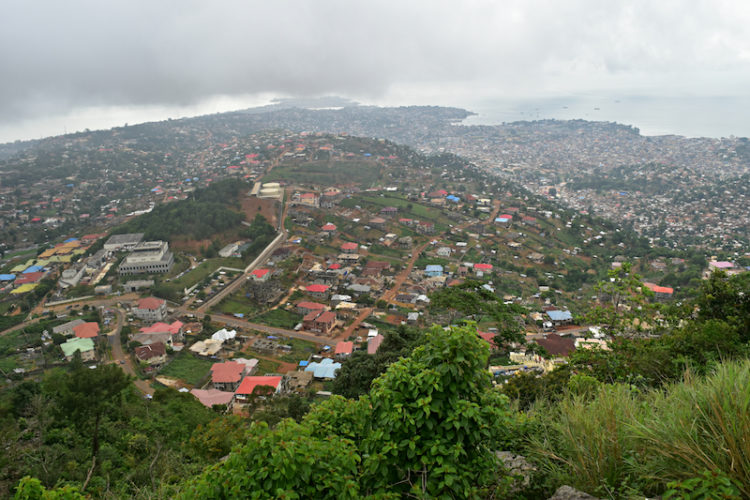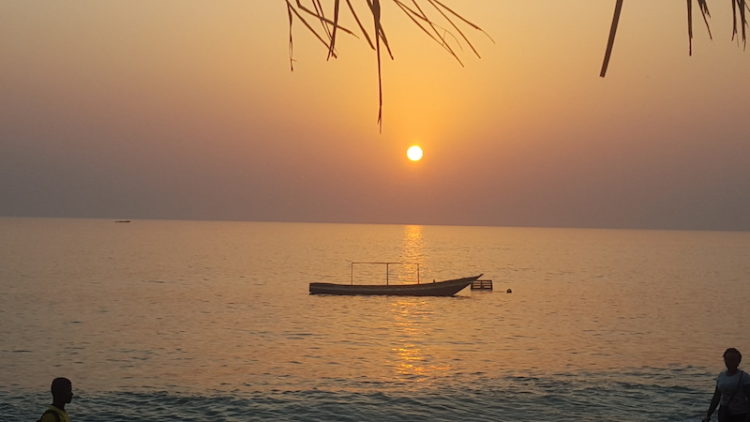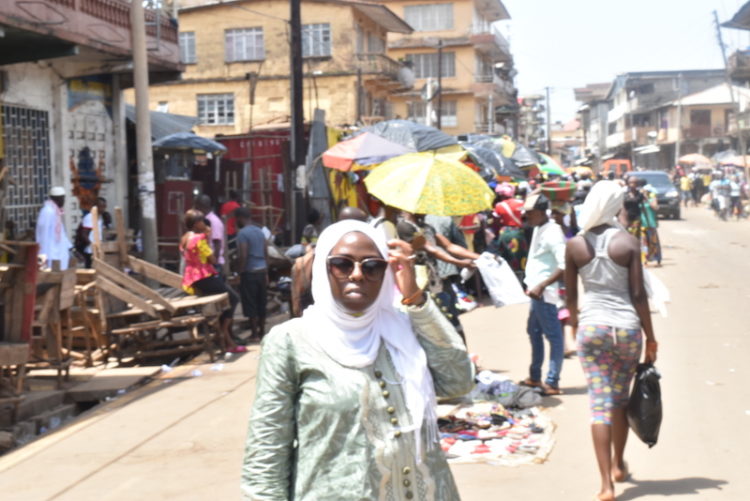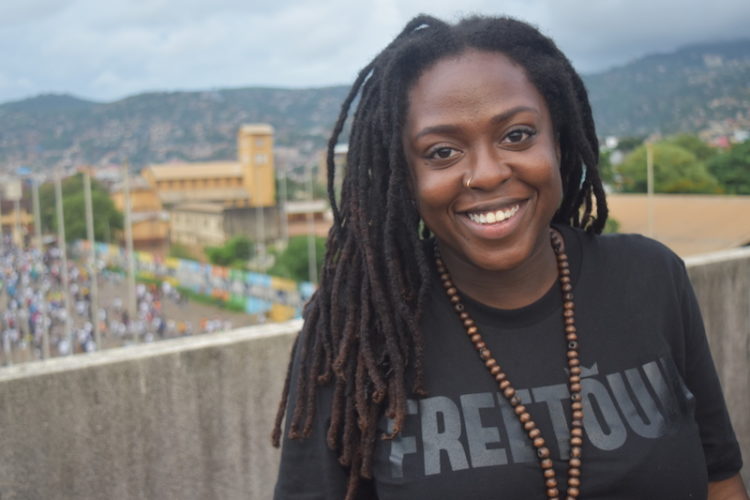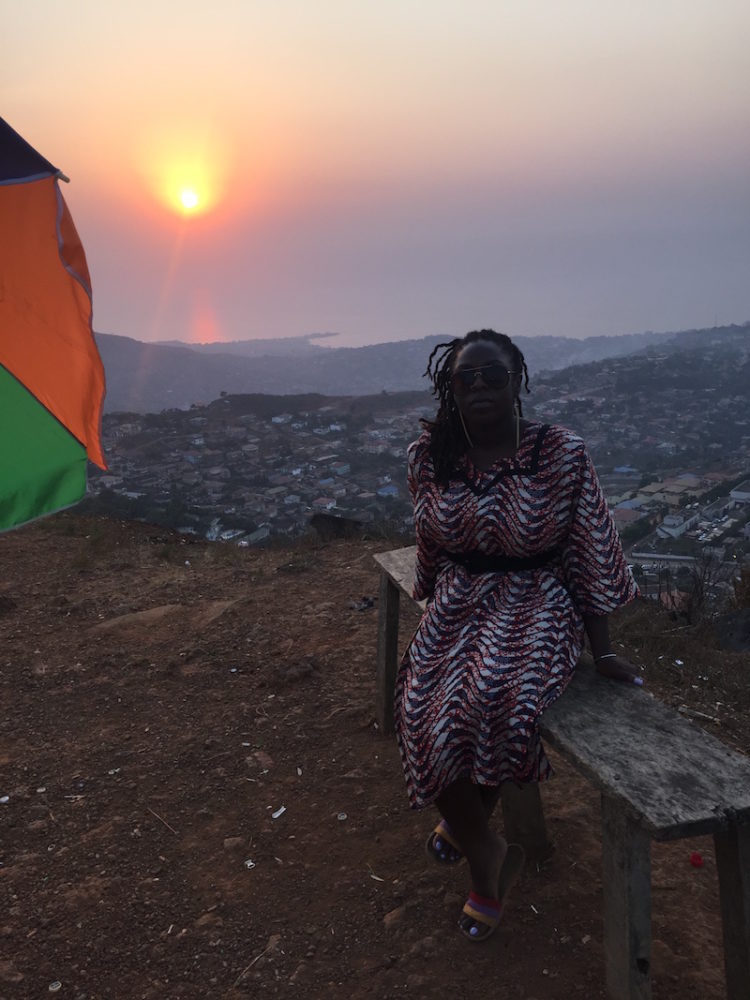The decision to move to Freetown, Sierra Leone, was an easy one. A country filled with beautiful views, amazing weather and beaches, who wouldn’t want to call this place home?
My first time moving abroad, the chance to reside in my parents’ old stomping grounds was too enticing to pass up. My parents made sure to always surround me with African culture. Whether it was food, music or clothes, I always knew about my heritage and it altered my experience in America.
The opportunity to work and play in my home country would be another step in finding out who I was. In my head I am a lover of the arts who is also proud of her African heritage. I am the offspring of African immigrants; I assimilated to my surroundings while still holding tight to my roots. Even before I touched down in the country, my African linage seeped through my pores. It was visible through my facial features, my natural hair, as well as my head wraps and African attire.
It wasn’t long after I arrived that my identity would be called into question.
But it wasn’t long after I arrived that my identity would be called into question, not only by myself but by those around me as well. From adjusting to life in a new environment, learning a new language and making new friends, I was tested in more ways than ever before.
No matter how much Africana I wore or how often I spoke the local language, I stuck out like a sore thumb. When I spoke Krio to locals, they would speak English back to me. My attempts to show appreciation and respect to my people through language just made me feel like an outsider.
Awareness of identity was something I couldn’t shy away from living overseas.
Learning the local language was one of the biggest obstacles. Though the official language of Sierra Leone is English, knowledge of Krio is vital in navigating successfully through the country. As the child of Sierra Leoneans, my childhood is filled with memories of my parents and other family members speaking Krio. Hearing the language was nothing new to me, but speaking it? – Na problem o. In addition, it was a struggle to get out my head about how ‘funny’ I sounded speaking my native language.
Awareness of identity was something I couldn’t shy away from living overseas. What I viewed as me embracing my African culture was the same thing that made me stand out in my native land. In addition to standing out, this also came with an advantage I was not expecting, yet could not run from.
In their eyes, if anything happened to me the American president would come after them.
Acknowledging how the community perceived me in Salone made it almost impossible to ignore my privilege. To be honest, I never expected to be treated differently than locals once I moved. Don’t get me wrong, people catered to me more during my time vacationing in Salone, but I thought living there it would be different. I believed over time, the more others saw me and got to know me, they would view me as an equal but that didn’t happen.
It was subtle at first; people were quick to make sure I was always ok. As time went on it became more obvious; getting better service in establishments when I spoke English; I even got into clubs for free because I spoke English to the bouncers. Locals were a lot nicer to me because I had a ‘blue book’ (American passport). In their eyes, if anything happened to me the American president would come after them. It was a different feeling being on the other side of privilege. It felt even weirder having it come from people who look just like you.
But my privilege did not always work to my benefit. There were times I would go to the market to shop and would be overcharged because I didn’t ‘look’ Sierra Leonean enough. Taxis would attempt to charge me more because ‘you Krio funny.’
Sierra Leone was the first place I was in that I felt I could be my authentic self.
Granted this was not my experience with everyone I interacted with, but it occurred too often for me to disregard. That emotion of advantage, whether it worked in my favour or was a hurdle to acclimating in Salone, was something I could not shake. This was true especially because I moved back home to be of service to others and at times I was treated as if I was a stranger.
My journey home forced me to step deeper into myself. I was brought closer to the traditions and values that have always ran through my veins. It opened my eyes to the history and beauty of my unknown truths. Sierra Leone was the first place I was in that I felt I could be my authentic self. I’m sure it was because I was American but I felt that whatever I did was accepted. I realised that regardless of how I saw myself, others will always have their own expectation of me. That expectation does not change the reality of me. Sierra Leone built confidence I never had that’s really shaped how I navigate life in the States.
I don’t remember a time while in Sierra Leone that I missed being in the States. Don’t get me wrong, there were certain aspects I longed for, but I did not miss being in America. Now that I am back, I miss Salone more than I ever imagined I would. I won’t lie; I do enjoy great customer service. But things that would frustrate me while there – power outages or unwanted guests – all seem irrelevant now. My time in Sierra Leone grounded my spirit and ignited a confidence.
This is part of a guest editorship series by Nadia Sesay. She’s producing a special feature for TRUE Africa on Sierra Leone.

